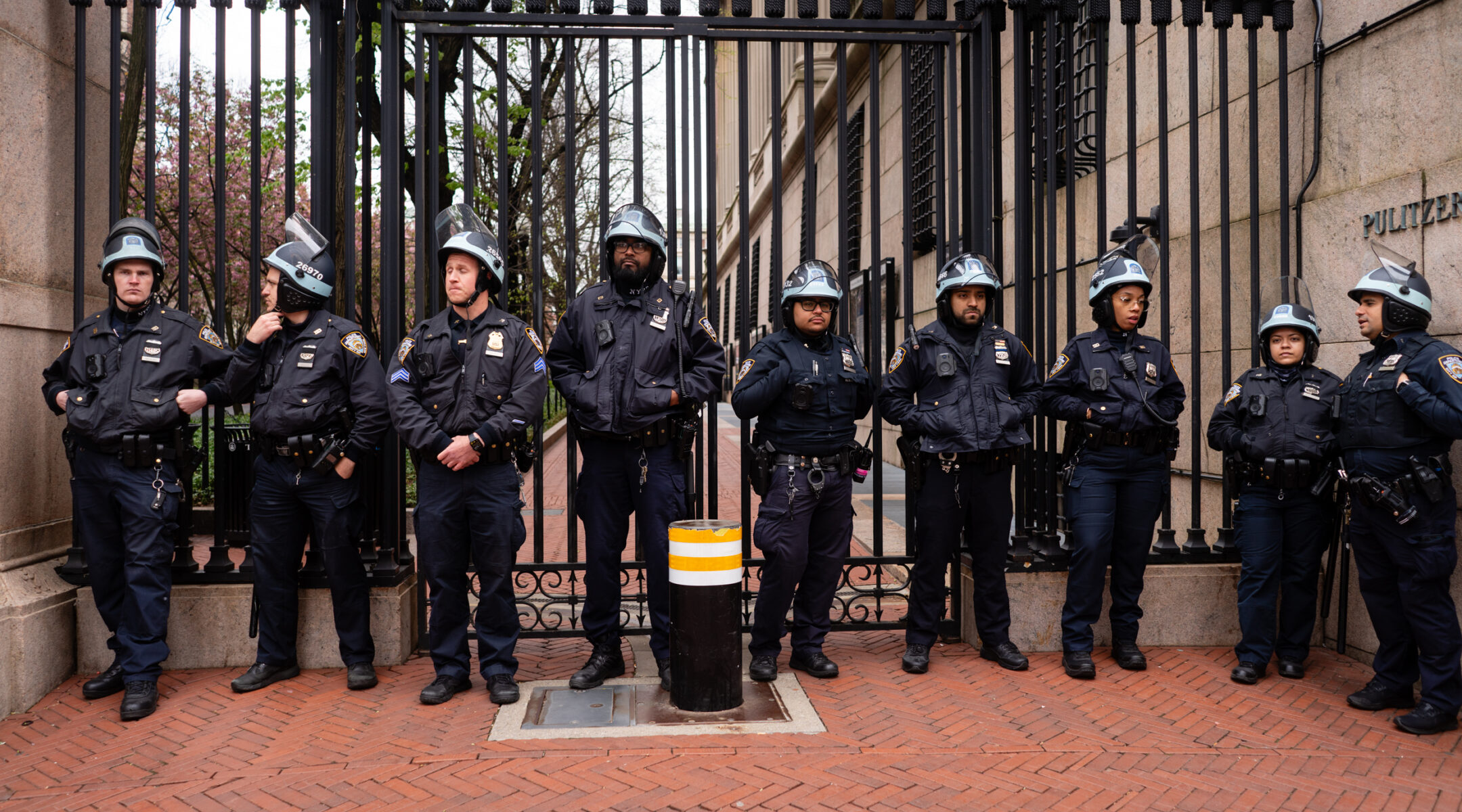(New York Jewish Week) – Columbia University announced Monday that it would be canceling its commencement ceremony following weeks of pro-Palestinian protest, campus turmoil and hundreds of student arrests.
Beginning nearly three weeks ago, the pro-Palestinian encampment at Columbia sparked a protest movement at dozens of campuses across the country. The Ivy League school, like other colleges, has struggled to contain the demonstrators.
“These past few weeks have been incredibly difficult for our community,” Columbia said in a statement Monday that announced it would instead hold a number of smaller ceremonies. Most of those ceremonies are slated to take place in an athletic facility 100 blocks away from the school’s main Morningside Heights campus, where commencement has typically been held.
The school said it would also explore “the possibility of a festive event” to be held on Wednesday, May 15, the same day as the planned commencement, “to take the place of the large, formal ceremony.”
Student protests have already started spilling over into graduation ceremonies at other schools. Over the weekend, schools including the University of Michigan and Northeastern University saw their own commencements briefly disrupted by pro-Palestinian students, while the University of Virginia ordered its own encampment disbanded and arrested dozens of protesters before holding its own ceremony.
The University of Southern California, which erupted in controversy after barring its pro-Palestinian valedictorian from delivering a speech, also canceled its commencement ceremony. Emory University in Atlanta, where dozens of protesters (including at least one professor) have been arrested in recent weeks, announced Monday that it would be relocating its own commencement ceremony off-campus.
The move was Columbia’s latest attempt to put a lid on the influence of its encampment, which like others is demanding that the school divest from Israel. The administration previously called in the NYPD on two separate occasions — including when protesters occupied a building last week — and shut down the campus amid violations of school policy and reports of antisemitic harassment and incitement.
Minouche Shafik, the school’s president, said in a video message on Friday that Columbia’s attempt to reach a deal with protesters — a strategy recently embraced by other schools including Brown University and Northwestern University — failed after protesters occupied the campus building, Hamilton Hall. Many encampments have sought to use commencement as leverage for negotiations.
The Hamilton Hall occupation “crossed a new line” and “was a violent act that put our students at risk,” Shafik said. She did not mention commencement in the video. Only days earlier, Shafik had assured the campus community in an email that “we will indeed hold a commencement.”
The move was criticized by some pro-Israel voices who had previously put pressure on the university to more forcefully deal with the encampments, including outspoken Israeli Columbia professor Shai Davidai, who himself received criticism after suggesting the school should call in the National Guard to deal with the protesters.
“The administration capitulated to a small and violent minority. They much rather appease the pro-Hamas mob than the thousands of peaceful students who just want a normal graduation,” Davidai wrote on the social network X. Republican New York Rep. Elise Stefanik, who has been a vocal critic of universities’ handling of the protests, said the cancellation “is an unbelievable failure of leadership.” House Speaker Mike Johnson, a Republican, called on Columbia’s trustees to remove Shafik.
Columbia’s commencement announcement came hours before its own journalism school prepared to announce the winners of this year’s Pulitzer Prizes, the prestigious journalism and literature prize. The awards are expected to include several reports on Hamas’ Oct. 7 terror attacks, the Israel-Hamas war and their impact.
The New York Jewish Week brings you the stories behind the headlines, keeping you connected to Jewish life in New York. Help sustain the reporting you trust by donating today.





